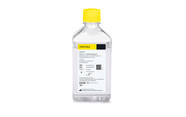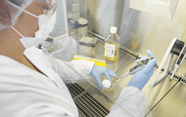Understanding Drug Development for Women
It’s obvious what women want – medicines that can treat healthcare problems unique to women. Meet a biotech company with a focus on women’s reproductive health.
Stephanie Vine | | 3 min read

At the end of 2023, Freya Biosciences raised $38 million in series A funding. The mission? To use the cash to develop immunotherapies specifically targeting women’s reproductive health.
In 2022, a report from McKinsey claimed that only one percent of money spent on healthcare R&D goes on women’s health (1). Even more concerning, experts speaking with The Medicine Maker explained that there is a prevailing attitude that women’s health issues are “simply a part of being assigned female at birth.”
“Women’s health doesn’t only affect half the world’s population directly, but also their families. Conditions that disproportionately and differently affect women have traditionally been underfunded and underdeveloped in proportion to its burden on human health,” says Colleen Acosta, at Freya Bioscience. “However, there is an encouraging and growing recognition of these gaps, as well as a rapidly expanding women’s health market. Venture capital firms, private equity funds, and the pharmaceutical industry are now recognizing the market potential and social impact of addressing women's specific healthcare needs.”
An area of women’s healthcare that Freya is focusing on is fertility. According to Acosta, approximately 1 in 10 couples face infertility and more than 2 million IVF cycles are performed per year. “Additionally, 1 in 10 women have endometriosis, with approximately 40–50 percent struggling with infertility,” says Acosta. “However, there are no therapies available to combat the disease or its associated fertility issues. Women undergoing IVF are also more at risk of premature birth. Of all babies born premature approximately 1 million of them die each year.”
Preterm birth, endometriosis, and IVF failure have all been associated with dysbiosis (disruption of the microbiome) in the reproductive tract. A healthy vaginal microbiome is characterized by the dominance of Lactobacilli species of bacteria and low levels of proinflammatory and pathogenic bacteria. Asymptomatic vaginal dysbiosis is not currently treatable and may not outwardly seem like a health problem, but it has been linked with inflammation and a host of reproductive health problems, including infertility (2, 3, 4).
There are no treatments currently available that specifically target the underlying inflammation, but Freya is using multiomics-driven data science, deep microbiome sequencing, and multiplexed immune biomarker profiling of human clinical samples to develop microbial immunotherapies. Results from a clinical study of the company’s investigational therapy FB101 demonstrated dysbiosis resolution with a rapid switch from a dysbiotic to a Lactobacillus-dominated vaginal microbiome, which was sustained for over eight weeks after treatment.
“Furthermore, the trial showed that engraftment of the FB101 Lactobacilli species was established in half of the women (as determined by strain-level engraftment analysis), with a concurrent change in inflammatory markers,” says Acosta. “We anticipate the readout from our Dyscover-3 dosing study for FB101 mid-2024, and the full results from our Dyscover-1 proof-of-concept study for FB101 2H 2024, in addition to clinical data for our FB301 candidate within the current financing period. We are currently investigating several infertility sub-indications too, such as IVF or other assisted reproductive technology procedures with significant unmet needs and sizable markets.”
Outside of Freya, how does Acosta feel about other developments in women’s healthcare? She explained that she was encouraged by “notable” developments in new drugs to treat breast cancer and autoimmune diseases, as well as next generation contraception and hormone replacement therapy to manage menopause symptoms and promote bone health. “More broadly in women’s health, there have been big successes especially in the medtech space, including digital health and AI, and health services for women,” she says. “Overall, however, investments in women’s health remain small compared with other sectors, and new therapeutics for women are still lagging.”
- McKinsey & Company, “Unlocking opportunities in women’s healthcare,” (2022). Available here.
- B Ngoc Bui et al., “The endometrial microbiota of women with or without a live birth within 12 months after a first failed IVF/ICSI cycle,” Scientific Reports, 13 (2023). DOI: 10.1038/s41598-023-30591-2
- B Zizolfi at el., “Endometriosis and dysbiosis: State of art,” Front. Endocrinol., 14 (2023). DOI: 10.3389/fendo.2023.1140774
- MA Venneri et al., “Human genital tracts microbiota: dysbiosis crucial for infertility,” J. Endocrinol. Invest., 45, 1151-1160 (2022). DOI: 10.1007/s40618-022-01752-3

Making great scientific magazines isn’t just about delivering knowledge and high quality content; it’s also about packaging these in the right words to ensure that someone is truly inspired by a topic. My passion is ensuring that our authors’ expertise is presented as a seamless and enjoyable reading experience, whether in print, in digital or on social media. I’ve spent fourteen years writing and editing features for scientific and manufacturing publications, and in making this content engaging and accessible without sacrificing its scientific integrity. There is nothing better than a magazine with great content that feels great to read.


















